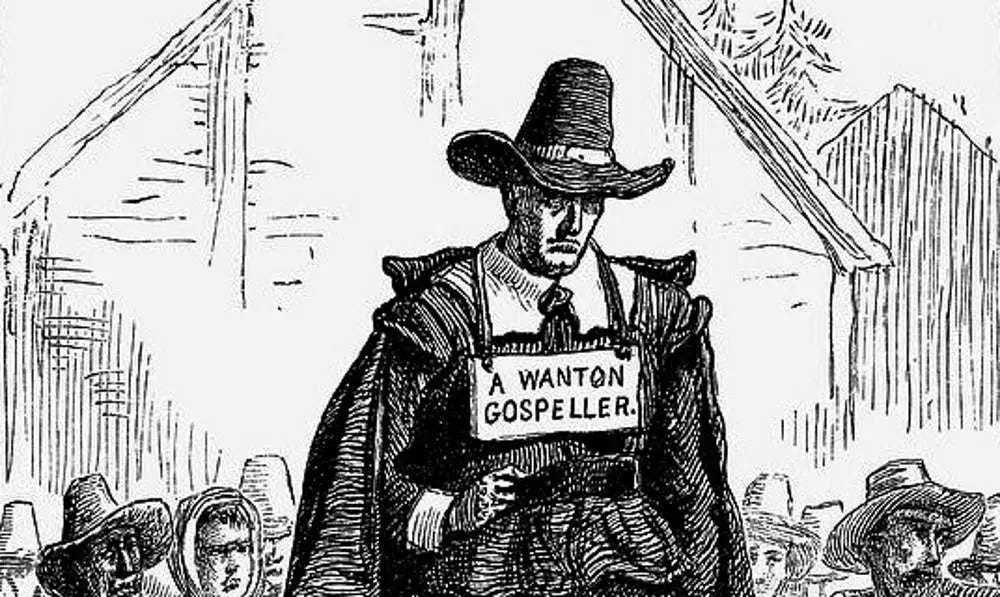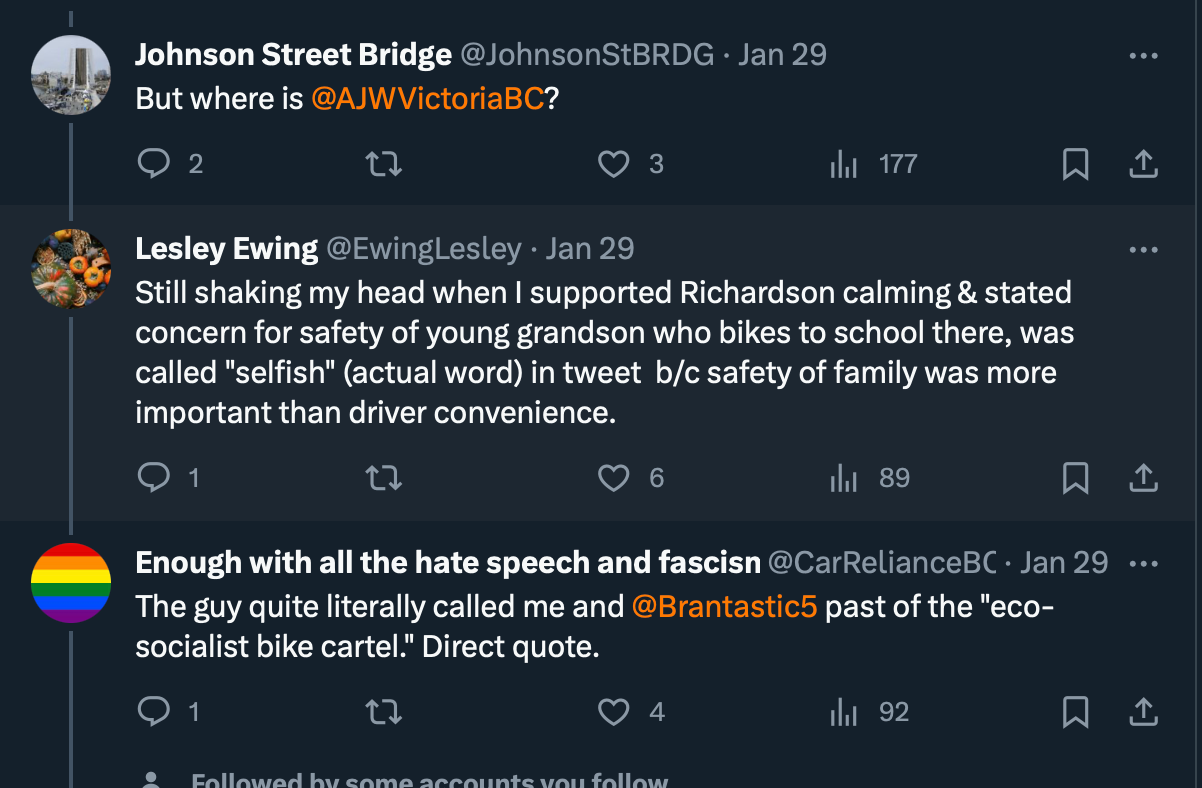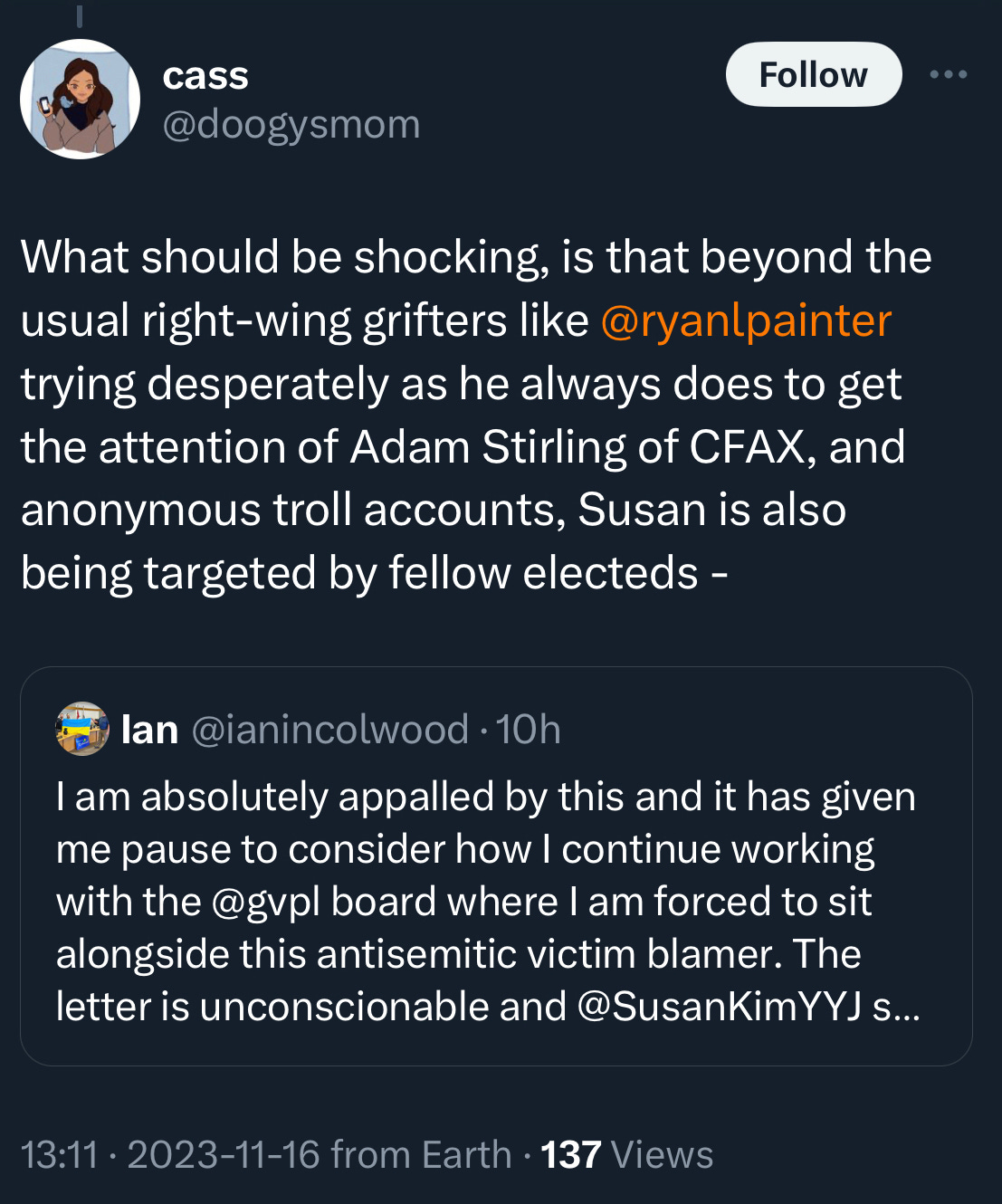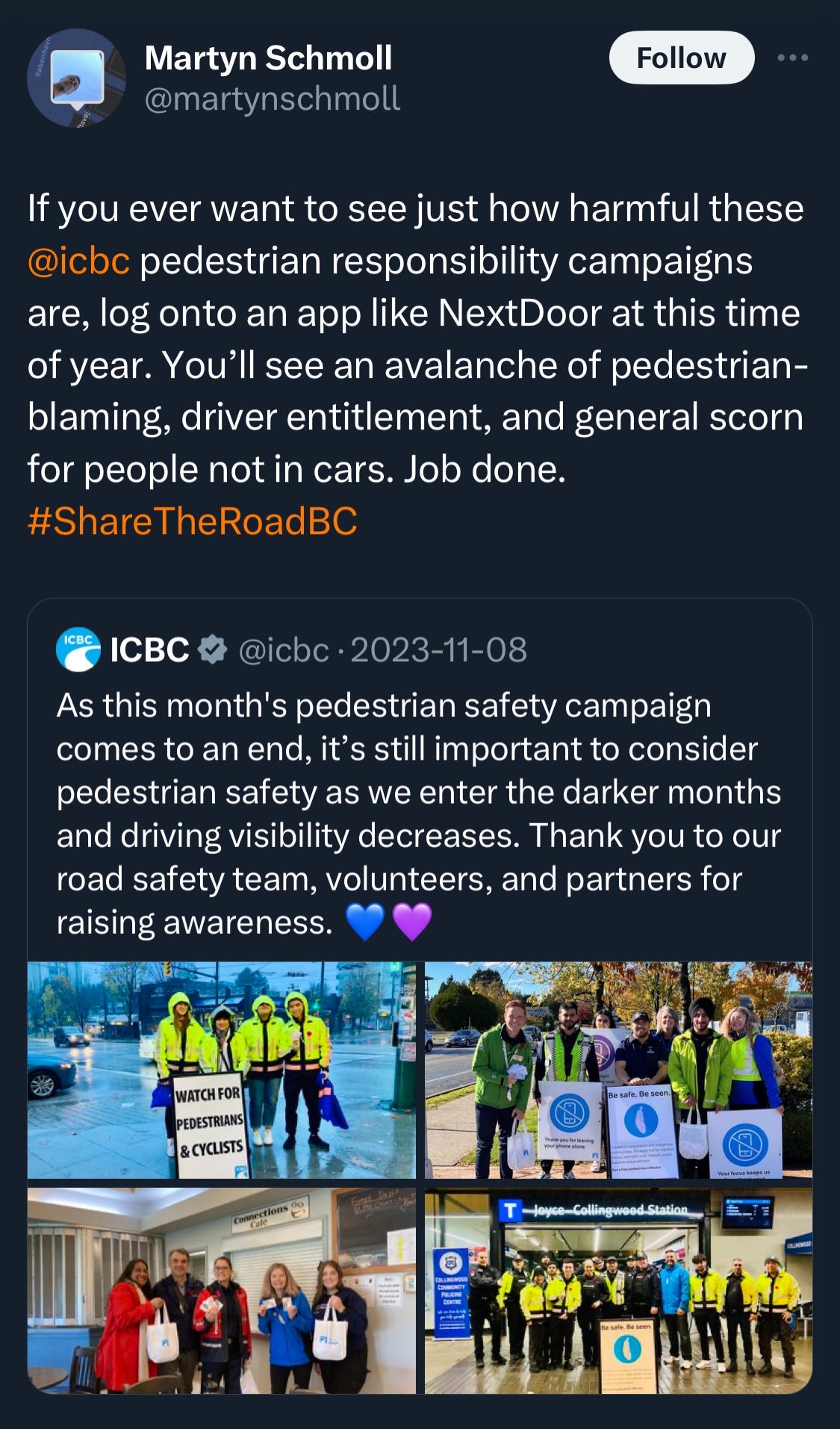Perpetually Elbows-up is No Way to Engage in Meaningful Politics
How a dangerous form of political fundamentalism has hindered political discourse in our community

Puritanism was a 16th- and 17th-century movement that sought to rid the Church of England of any Roman Catholic practices under the claim that the Church of England had not fully reformed itself with mere separation. The movement played an important role in early English parliamentary and American history, which is partly why people are even aware of its existence in history (it’s not like the average person could tell you what a Trinitarian is despite that group having even more influence on the Christian church than Puritans). But another reason history remembers Puritans is that we’ve come to use the word broadly to describe people or groups who are highly unwelcoming to new ideas and markedly cruel to their perceived enemies. And that was because Puritans were explicitly closed-minded, outwardly intolerant and downright evil toward people and groups they decided were not purely Christian enough.
There is a form of political puritanism or, more accurately, political fundamentalism in Victoria's local political discourse which threatens meaningful policy development for the broadest range of citizens. This political fundamentalism does not reside solely on one side of the political spectrum or the other— both the left and the right have vocal and very active actors who are engaged in advancing a fundamentalist narrative regarding Victoria’s local governance. And it’s not a phenomenon limited to local politics or the City of Victoria itself; it has also crept into our provincial and federal political scene. But we’re going to focus on Victoria in this newsletter.
Fundamentalism has its roots in religion, but religion and politics in the Western world are interlinked or have been for most of history. So, a cross-over exists between the beliefs we once held as tremendously important as a religious society and the political beliefs we hold today to be tremendously important as a secular society. There is an argument to be made that the sheer absence of religion in society has contributed to the rise in fundamentalism within the political sphere of our lives (but that is most certainly a topic for another newsletter).
Religious fundamentalists will define in-groups and out-groups along their faith's theological or spiritual teachings. Certain aspects of the faith are determined to be fundamental to the core value and purpose of the group itself, so much so that going against these teachings presents an existential threat to the group and its members. In the case of Puritanism in England, it was fundamental to the faith that the Church of England purify itself of any perceived influence or connection to the Roman Catholic Church. This was because the Protestant Reformation had taken hold, and while the Church of England had declared separation from the Roman Church, they still maintained many Roman traditions and customs in their teachings and liturgy. Puritans were members of the Church of England who could not accept even a whiff of popish things around, not because of a personal preference but because they believed these things to be completely contrary, countering and threatening to the core of their understanding of a true Christian faith. It wasn’t enough that they didn’t want these things around; everyone else had to be on board to be considered true Christians themselves. Furthermore, since these things alone threatened the existence of the true Christian group itself, members were obliged to seek and root these things out on their own. To not do so would be to contribute to the threat of the group's impurity and death, immediately making one an enemy of the group and the subject of unmeasurable cruelty.
Given our current state of local political discourse, there might be no more reason to dive into the history here if you are starting to see where I am going with this. The reality is that we have a political establishment in Victoria which has created in-groups and out-groups among politically engaged citizens and advances a political narrative that, if opposed in the slightest form, is taken as a threat to the very existence of their political motivations and ideals as a whole. With this binary understanding of the political landscape, they relentlessly attack and belittle anyone who expresses even the slightest opinion or perspective different from their own.
Let’s look at the perception of the Victoria political puritans regarding former provincial MLA Andrew Weaver as an example. Despite being an exceedingly accomplished professor of climate sciences who has published or co-published over 200 peer-reviewed papers and a highly vocal critic of human-caused climate change, Weaver is outright despised by this group. And it seems that Weaver doesn't think too highly of them either, calling one of the most vocal actors online a member of the “eco socialist echo chamber biking cartel.”
This is a group that values environmental issues around climate change policy. They’ve hinged the existence of a regional active transportation network on the fact we need fewer cars on the road because of their contribution to global warming. Councillor Jeremy Caradonna feels confident calling municipal arterial roadways “car sewers” and citizens concerned about increased parking costs “cheapskates” precisely because both issues can be couched in the environment where dissent is seen as an existential threat. Given his credentials, you would think Andrew Weaver would be a shoo-in hero for these people. I mean, the man turned politician as a BC Green and could make provincial headlines for the party and cause by simply existing in the legislature. But just like during the 16th and 17th centuries when the English political machine was turned upside down by Purist views and actions, our local politics has been turned upside-down to the point that Weaver is considered a toxic individual to have around the scene. And they openly mock him routinely together in their threads concerning issues relevant to the city.
And what is Andrew Weaver’s sin? How did he step out of line to the point of threatening the existence of the in-group itself, justifying the ridicule of a professor who has devoted his professional life to climate science and a portion of his adult life to public service? He has taken issue with some aspects of how the city is run and some decisions made over the past few years. That’s it. In other words, he is an average, engaged citizen with opinions on areas of responsibility of his democratically elected local government. But his opinions crossed the generally accepted beliefs of the in-group, which, given their puritanical nature, sees any tiny bit of opposition to these beliefs as a total rejection of everything and anything they stand for. It becomes existential for them. And this is how they justify this frankly inexcusable behaviour online.
The irony here is that Weaver calling this group the “eco socialist echo chamber biking cartel” is a roundabout way of labelling them fundamentalists. (1) Socialism is their political flavour (if you have to assign one) and a banner for them to rally around. (2) All fundamentalist groups are essentially echo chambers because after they’ve carved up the world into different out-groups, the only people left are their own members. Once you purge the impure from the membership, all that remains is a tight group of people who think, feel and act almost the same way— an echo chamber. (3) The biking cartel part is a means of localizing the group to Victoria because cycling seems as significant to them as a belief in the Trinity or True Presence was to religious fundamentalists of the past. (4) And finally, like all fundamentalist groups, they are highly militant and cruel in their treatment of perceived enemies, hence the cartel.
Of course, an innovative and accomplished man like Andrew Weaver could place his finger on this group before I even put pen to paper for this newsletter.
It doesn't stop with Andrew Weaver. Step out of line, and they’ll come up with some of the worst names to call you. Take Ryan Painter as another example. Painter was a long-time active and very public member of the BC NDP. He was chair of the Greater Victoria School Board, where he championed 2SLGBTQ+ community rights and advanced the SOGI123 policy. And yet, what do the Victoria political puritans think of him today? He is a “right-wing grifter.”
Suppose you know anything about SOGI123 and how conservative groups in our province have outright rejected it. In that case, you might be blushing at this very moment reading a suggestion that anyone who would be proud to play a part in creating such a policy could be labelled anything near right-wing. But no one ever accused fundamentalists of being logical; in fact, they are stunningly anti-logic, and any environment where they persist will never truly make sense if understood solely through their rhetoric and harmful language. So Ryan Painter dedicated his professional life toward advancing progressive ideals, got elected as a school board chair in super-progressive Victoria, and became a member of the puritans’ own accepted provincial party working to get them elected into power. Not good enough, not once you’ve stepped out of line even slightly.
We are just getting this newsletter started and need as much support as possible. Please subscribe to show your support and get weekly updates sent directly to your email inbox every Friday morning.
What is Painter’s sin? He supports the state of Israel’s right to exist and has called out overt antisemitism within the ranks of the BC NDP. He was also Stephen Andrew's campaign manager during his run for mayor in the previous election. Removing himself from a political party he no longer supported while maintaining the status quo of Canadian international policy in standing by Israel and supporting a mainstream candidate in a municipal election is what allegedly today makes Ryan Painter a member of the out-group and a prominent shill for the entire cause against their existence according to the political puritans. Remember in Victoria politics there is no greater fault than being right-wing. And that, they feel, justifies using a worn-out epithet to signal to all the other members of the group that he is not one of them and therefore not worthy of their time rather than using evidence and logic to counter whatever point Painter made which triggered this unfounded response. A group member could be considered impure for positively engaging with him. That’s how fundamentalism controls its members. You’re not even allowed to explore other perspectives outside the group lest you become the target of the same abuse.
It has become so bad in our local discourse that ICBC cannot even close a pedestrian safety campaign without the Twitter account of Martyn Schmoll casting scorn on them for daring to suggest some responsibility for those who do not use vehicles. In this age of climate crisis, how dare they apply basic safety management principles and call for all parties involved in potential conflict areas to be vigilant! How does a grown adult end up in such a sad state of twisted logic? It can only happen when you cross the line into fundamentalism and begin to see your beliefs as not just ideas you hold but as core tenants of a group of people who share those beliefs and elevate them to such great heights that any perceived opposition or criticism becomes life or death threat to your political goals. You could only come close to justifying such petty engagement on the subject by taking a harmless ICBC safety campaign and translating it into something presenting an existential threat to your groupthink ideals.
The problem with having such loud and active voices advancing a fundamentalist agenda in our local political scene is that it robs citizens of the good policy development they rightly deserve. The purpose of any political discourse ought to be the creation of sound policy that, after considering the thoughts and concerns of the broadest swath of people, can translate into good governance. There is room for ideology and a degree of groupthink— our federal and provincial parliamentary systems, with their political parties, are primarily driven by this. But there is a reason why political parties do not exist at the municipal level, and it is because issues delegated to municipal governments are mundane. No doubt, they serve a genuine purpose in the day-to-day lives of local citizens, but they are issues that become very awkward when drawn along ideological lines. Just think about it for a second. Should filling potholes down the busiest street in the city be a left-wing or right-wing issue? Should deciding where to build a library be a matter of whether one is a blue or red Tory? It would be ridiculous. And yet here we are today. These are issues that do not require ideological thought. Actually, they don’t just not require ideological thought; it is utterly unproductive and counter to any real progress to bring it into frame at all. These important local issues need pragmatic and balanced approaches that seek input from the broadest base of the local population to generate the best solution through disagreement, compromise, and consensus. With where we are today, we can’t even talk about empty retail space in our city without it becoming a veiled ideological punchline (a Councillor Matt Dell specialty) concerning housing policy.
Ultimately, because of the state of our political discourse and the prominence of the political puritans, we are left with a local government that develops bad policies and makes bad policy decisions. These policies and decisions are not good because they are based on ideology under a narrow understanding of what is considered politically acceptable. Today, our local government actors rarely seek meaningful input from those outside their ideological thinking and reasoning. If they do, it rarely seems like the concerns were validated or even considered in the final decision. That is a very toxic environment for local government when many engaged citizens begin to feel shut out. And not just shut out but despised and hated by those in power for no other reason than not being a member of the decidedly in-group.
And this is the point that I would like to end on. At the start of this newsletter, I mentioned that both sides of the political spectrum are guilty of engaging in forms of fundamentalism. And I do believe that. But in Victoria, there is only one side which, despite their repeated claims otherwise, wields considerable power and authority within the boundaries of this city. This is a pre-requisite for fundamentalism to take hold truly; the in-group must have access and maintain that access to power. So we not only have political puritans who are the loudest voices on social media and anywhere there is local political discourse unfolding, but they hold the levers of power with little to no indication of it changing. I cannot say what the way out of this is for our city’s political scene, but I am an amateur student of history, and looking to the past, I can tell you that when English Puritans gained political power and control, it was not a period celebrated and remembered fondly today.









Commenting simply to acknowledge ... & express agreement. We are in a tragic time that fully embodies the expression "the road to hell is filled with good intentions." I do not doubt the sincerity of those good intentions, but as a family tragedy has taught me, we are blind when we let aspirational intent cloud our vision of reality.
"The reality is that we have a political establishment in Victoria which has created in-groups and out-groups among politically engaged citizens and advances a political narrative that, if opposed in the slightest form, is taken as a threat to the very existence of their political motivations and ideals as a whole. With this binary understanding of the political landscape, they relentlessly attack and belittle anyone who expresses even the slightest opinion or perspective different from their own."
Philosopher Soren Kierkegaard concludes that love, truth, and faith are the same, when real.
THIS is what's so offensive about the approach of Thompson, Caradonna, Kim, Dell and Loughton: either they don't have the wit, or the tiny bit of self-reflection, to see the cruelty and destructiveness of their fundamentalism, or their hubris is so strong in the face of truth and love, they don't care.
Like every politician who trades on ideology over people (love, truth, faith), and the left and right are indistinguishable this way, they have no choice but to act with unimaginable cruelty, even causing harm and death, because their ideology fails at the speed of light when people of truly diverse (not just shallow shapes and colours) thinking, interrogate them for truth. Love and truth are existential threats to their "strongly held beliefs."
Kierkegaard is saying to Thompson, Caradonna, Kim, Dell, and Loughton that their faith is invalid because it's incompatible with truth and love. As a result, their faith cannot be positive, constructive, or build community. Quite the opposite.
I couldn't agree more, and the evidence is everywhere: less compassion, more incivility, people turning away from the process entirely, people entrenching into their own fundamentalisms, corruption, and less compliance with community norms, even bylaws.
As you describe in your essay: nothing new here.